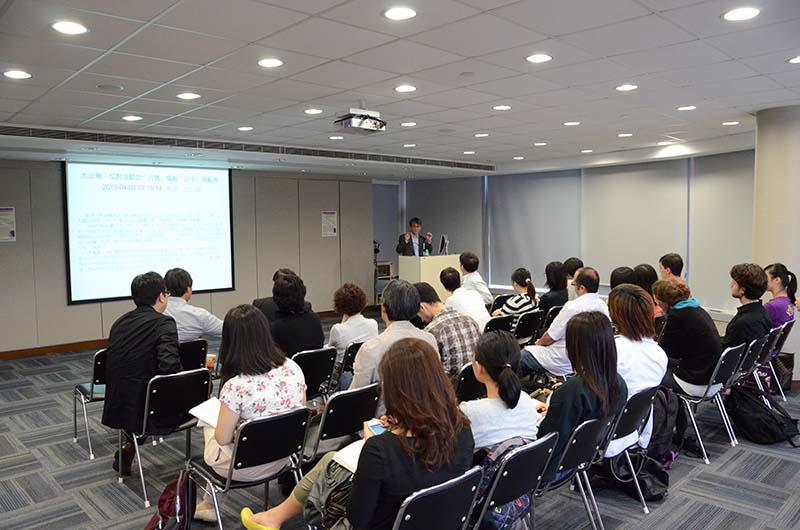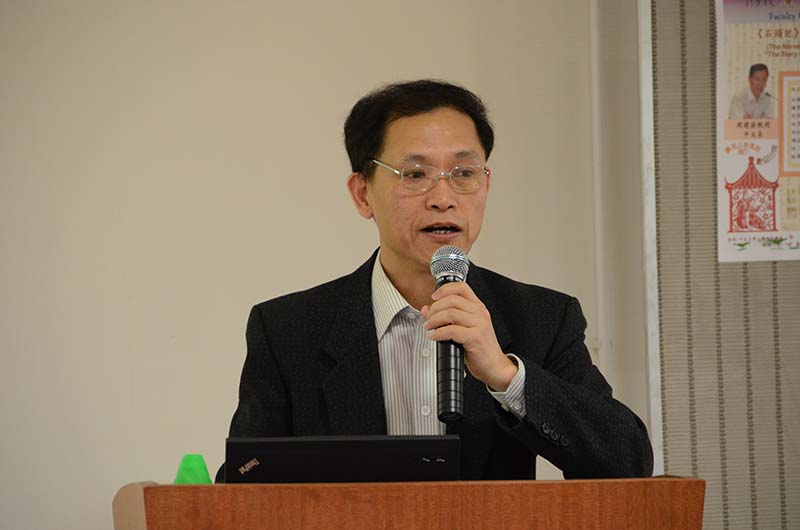On the Re-conceptualization of Confucianism: A Contemporary Neo-Confucian Perspective

Speaker: Prof. Cheng Chung Yi (Department of Philosophy)
| Date: | 7 June 2013 (Fri) |
| Time: | 4:00pm |
| Venue: | Activities Room, 2/F, Art Museum East Wing, Institute of Chinese Studies, CUHK |
| Language: | English |
| Abstract: | Abstract: Confronting the challenge by Western ideas such as those of philosophy and religion and the attacks on traditional Chinese culture during the twentieth century, contemporary Neo-Confucian scholars (dangdai Xinrujia當代新儒家, also named Tai Gang Xinrujia臺港新儒家) were committed to revive Confucianism. Their strategy for showing Confucianism not an archaic irrelevance is in a way to reconceptualize Confucianism that involves reinterpretations of its core ideas with the appropriation of Western ideas. It is easily to make assumption that scholars comprise this specific school share the same or at least similar reconception of Confucianism, but that is not true. Liang Shuming characterized Confucianism as a teaching of self-cultivation, emphasizing practice rather than theory or discourse. Accordingly, Confucianism is essentially different from the speculation of philosophy and the renunciation of religion. On the contrary, Xiong Shili insisted that the goal of doing philosophy is beyond mere theorization so as to deal with the nature of original substance (benti本體) and ontology, and that Confucianism should be conceived as the authentic philosophy for it provides the access to original substance through practitioners’ existential testimony (shizheng實證). While Xiong’s students Tang Junyi and Mou Zongsan further proclaimed the religiosity of Confucianism in addition to Xiong’s construction of metaphysics, another Xiong’s student Xu Fuguan had voiced reservations about reconceptualizing Confucianism in terms of philosophy and religion. Despite the fact that there are different views of what Confucianism really is among contemporary Neo-Confucian scholars, it is not impossible for these dividing views to be integrated through clarification and exchange, generating a new conception of Confucianism with strong theoretical base, which using the words of Tang Junyi is this: Confucianism is a combination of philosophy, morality and religion. |


For the powerpoint presentation of the talk, please click here.
Traditions and Subversions: Cultural-politics of Hong Kong Music Within and Without China

Speaker: Prof. Yu Siu Wah (Department of Music)
| Date: | 10 May 2013 (Fri) |
| Time: | 4:00pm |
| Venue: | Activities Room, 2/F, Art Museum East Wing, Institute of Chinese Studies, CUHK |
| Language: | English |
| Abstract: | Music, or yue in the Chinese context, has long been entwined with theories of politics and governance since its very beginning, a fact mostly neglected by students and teachers of music in Hong Kong. While censorship of subversive works of art has been witnessed in the past, politically sensitive contents survived the vigilance of the colonial government precisely because those who were responsible for the scrutiny of performing arts were relatively uninformed of the culture of post-1949 China. Such a tradition was prevalent during the pre-handover decades and some aspects of it have continued after the return of sovereignty of Hong Kong from the British to the PRC government in 1997. This talk focused on examples which are subversive within the greater Chinese context, and pertinent and provocative without. |


For the powerpoint presentation of the talk, please click here.
The Narrative Levels of “The Story of the Stone

Speaker: Prof. Zhou Jianyu (Department of Chinese Language & Literature)
| Date: | 12 April 2013 (Fri) |
| Time: | 4:00pm |
| Venue: | G24, Fung King Hey Building, CUHK |
| Language: | English |
| Abstract: | The talk focused on the multi-levels of narrative in The Story of the Stone (also called Dream of the Red Chamber). It discussed the different functions played by these levels, the possibilities that they provide in interpreting the novel’s meaning, and how the different levels interweave and inter-connect with one another in order to form a rich and complicated narrative structure. The talk also discussed the role played by the Buddhist monk and the Taoist at different narrative levels |


For the powerpoint presentation of the talk, please click here.
Shampoo in China: Development, Consumerism, and Modernity

Speaker: Prof. Joseph Bosco (Department of Anthropology)
| Date: | 15 March 2013 (Fri) |
| Time: | 4:00pm |
| Venue: | G24, Fung King Hey Building, CUHK |
| Language: | English |
| Abstract: | The talk sought to understand consumerism by examining the rapid adoption of shampoo in China since 1979. Before 1979, the same bar soap used for laundry was used for washing the body and hair, and it was rationed. In the 1980s, many domestic soap and shampoo brands emerged, but after 1986, products made by multinational companies became popular. Many consumer advocates have argued that the quality differences between different brands are slight. Yet some “foreign” brands (made in China) cost three times or more than local brands. Why are people willing to pay a premium for fancy soap and shampoo, when only the user, in most cases, knows what type of soap he/she has used? What images and ideals are consumers buying with each bar or bottle? What does the rapid adoption of shampoo in China tell us about consumerism and the prospects for sustainable development? |


For the presentation material of the talk, please click here.
From Cooking Utensil to Cosmic Omen: Ding-tripod as Embodiment of Cultural Memory 由炊具到祥瑞:鼎與文化記憶

Speaker: Prof. Poo Mu Chou (Department of History)
| Date: | 1 Mar 2013 (Fri) |
| Time: | 4:00pm |
| Venue: | Activities Room, 2/F, Art Museum East Wing, Institute of Chinese Studies, CUHK |
| Language: | English |
| Abstract: | The study investigated the changing meaning of ding-tripod in the cultural memory of ancient China. The example of ding shows how an object of daily use could be invested with all sorts of cultural memories: during the Shang, personal achievement and family prestige were transmitted through the bronze ding and the engravings on it; during the Zhou, ding became the symbol of political authority; during the Han, through the recounting of the stories of the Yellow Emperor’s gaining the divine ding, it was elevated to the status of an auspicious omen that could legitimize the political power as well as personal virtue of the sovereign. Meanwhile, it is worth noticing that the expanded and mythical significance of ding during the Han gradually gave way to the earlier meanings. It was the physical aspects of the bronze ding—heavy and stable, finely decorated and expensively made, and the political implication of ding that were remembered and transmitted to the later eras. |


For the presentation material of the talk, please click here.
On Translating Hamlet into Chinese and European Languages

Speaker: Prof. Wong Kwok Pun Laurence (Department of Translation)
| Date: | 22 February 2013 (Fri) |
| Time: | 4:00pm |
| Venue: | G24, Fung King Hey Building, CUHK |
| Language: | English |
| Abstract: | In theory, translating any source text into any target language is one and the same process. In practice, however, this “one and the same” process can be extremely protean. With reference to Shakespeare’s imagery and wordplay, this talk discusses how and why translating Hamlet into Chinese can differ widely from translating the play into some of the major European languages, namely, French, German, Italian, and Spanish. In the discussion, both linguistic and cultural factors will be examined and analysed. |
 |
 |
 |
For the powerpoint presentation of the talk, please click here
For those who would like to review the video archive of the talk, please contact the Faculty Office at 3943 7107.





